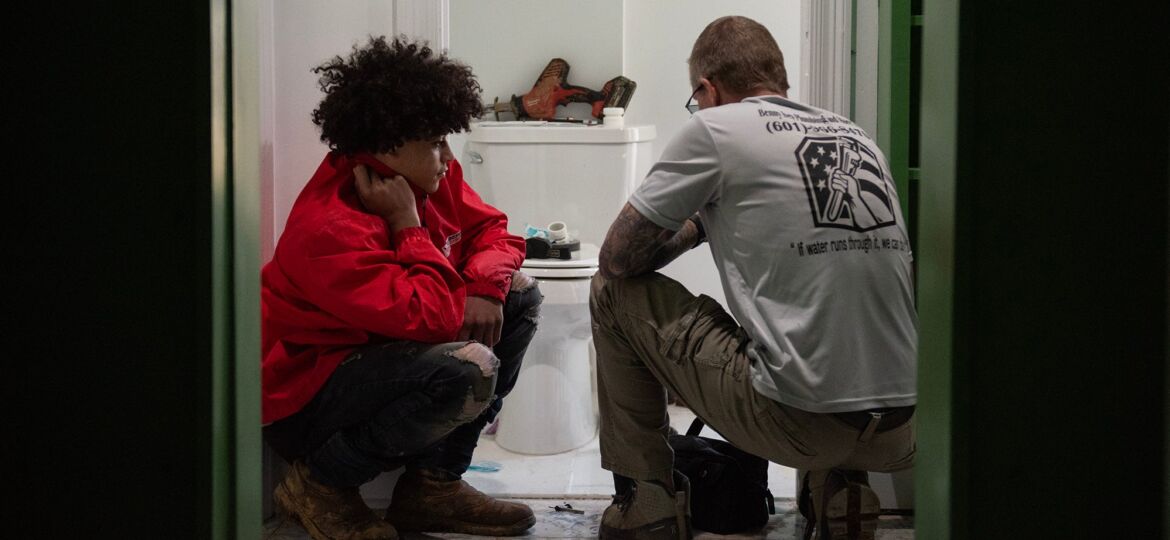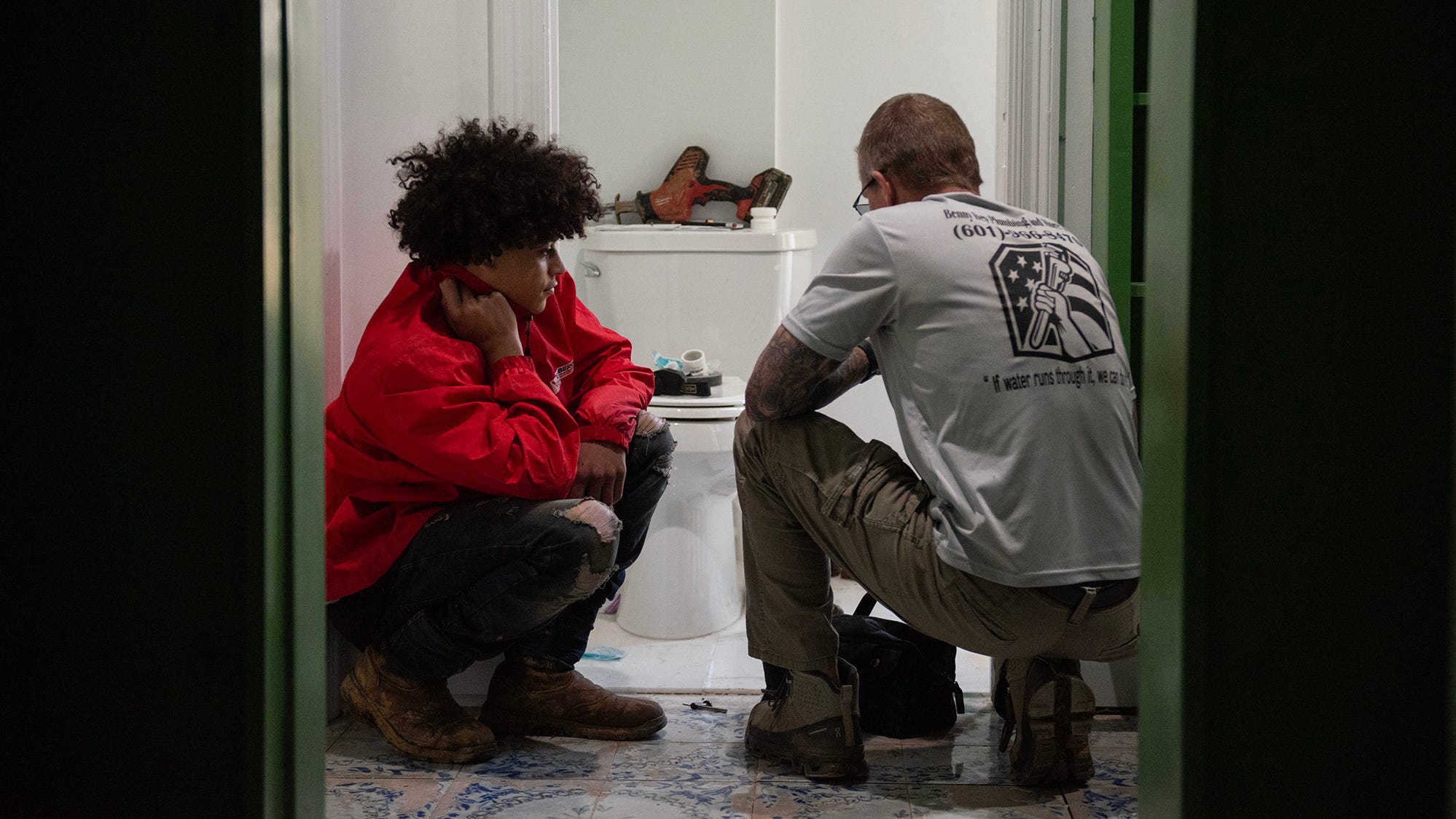
Editor’s note: Welcome to the first edition of the Clarion Ledger’s political notebook, where readers will find details they may have missed in state political coverage. This column is posted online on Sundays and in print on Mondays.
The number of people who have lost the right to vote in Mississippi, whether it’s right or wrong, may be jarring to some.
Criminal justice nonprofit, The Sentencing Project, has published an estimate of the number of people in Mississippi that have lost their voting rights due to one of 22 disenfranchising felony convictions.
The Study, which was published on Oct. 10, found that at least 68,871 Mississippians have been disenfranchised. According to its results, Mississippi is one of 10 states to institute disenfranchisement for people in prison, on parole, on probation and during post-sentence. Of the 68,871 in the magnolia state, 43,744 of them are Black.
Two of Mississippi’s neighbors, Alabama and Tennessee, have the same level of disenfranchisement. Tennessee has 399,584 disenfranchised residents and Alabama has 227,437. Mississippi ranks 13th among all 50 states in total disenfranchised residents.
Disenfranchisement has its roots deep in the soil of Jim Crow South. During the 1890 constitutional convention in Mississippi, the practice was adopted to prevent Black voters from reaching the polls, according to Clarion Ledger records and reporting.

House voting rights efforts this year:Mississippi Legislature approves 21 suffrage bills in 2024 session
“There is no use to equivocate or lie about the matter. Mississippi’s constitutional convention of 1890 was held for no other purpose than to eliminate the (explicative) from politics,” Former Gov. James K. Vardaman said of the decision years later. Other Southern states soon followed with similar laws, as reported by the Clarion Ledger.
Attempts to give many of those people back their voting rights died in the Senate during the 2024 Legislative Session, and both House Speaker Jason White, R-West, and House Constitution Committee Chairman Price Wallace, R-Mendenhall, have vowed to take up the legislation again in 2025.
Earlier this year, a U.S. appeals court also ruled the state can continue to disenfranchise people.
Details from the October TANF hearing
Last Tuesday, Senate and House Democratic lawmakers held a hearing on reform recommendations to the Temporary Assistance for Needy Families program, which is administered through the Mississippi Department of Human Services. Here are a few details.
During the hearing, MDHS Executive Director Bob Anderson told lawmakers the agency is still seeking an expert on TANF funds and additional staff to oversee the program.
Not long ago, a lack of proper oversight led to more than $77 million in TANF funds being misappropriated and misused by alleged bad actors. Those who received the funds, first identified in 2020, spent them on luxury items, cars, salaries and other commercial endeavors while ignoring the needs of the state’s poorest residents. Former MDHS Director John Davis, as well as others, have pleaded guilty for their roles in the scandal. The case is ongoing.
Other updates:
- Anderson is recommending an increase in monthly cash assistance for TANF recipients from $260 to $320, plus more for families with several dependents.
- The Child Protection Services, which was once part of MDHS, receives $29 million of MDHS’s annual TANF allotment from the federal government.
- Direct cash assistance recipients made up about 5% of the $86.5 million TANF budget, Anderson said.
- Less than 10% of those who apply for TANF benefits receive them on a monthly basis. “Just looking at it, it is unbelievable what is required of an applicant and at every turn. You have ‘case denied’ hanging in the balance every time something doesn’t go as it should for that person who is applying,” Anderson said.
What advocates said of MS TANF program:MS welfare director, advocates talk TANF with state Dems. Tuesday. What did they say?
AG advocates for paid maternity leave for state employees
During a Senate hearing earlier this month, State Attorney General Lynn Fitch asked lawmakers to consider giving state employees paid maternity leave. The state has no paid leave for new mothers and fathers.
In Mississippi, there are at least 24,000 full time state employees, according to a Mississippi Personnel Board 2023 annual report. Currently, the state offers up to 12 weeks of unpaid leave per the Family and Medical Leave Act.
Fitch made the request during a hearing of the Senate Study Group on Women, Children and Families at the Mississippi State Capitol.
“This is a critical component (of employment),” Fitch said. “This is about the opportunity to give these young mothers to be in public service. We’re talking about people that want to serve, but this could be an impediment of whether they take that private sector job versus coming into the public sector.”
Youth court discussed at Senate hearing:Mississippi youth courts are broken, struggling with staff, funding. How can they be fixed?
Want to know more about weed in Mississippi? So, do we
Earlier this month, the Clarion Ledger published an article to serve as a hub for information related to the Mississippi Medical Marijuana Program, which came into law in 2022. The article, which published on Oct. 11, will be updated as new information is made available about the program and your questions arise.
Please contact Legislative and State Government Reporter Grant McLaughlin with your questions about the program, and answers will be added. Grant can be reached at 972-571-2335, or by email at GMcLaughlin@Gannett.com.
Mississippi Medical marijuana questions:Is weed legal in Mississippi? We have the answers
Grant McLaughlin covers the Legislature and state government for the Clarion Ledger. He can be reached at gmclaughlin@gannett.com or 972-571-2335.


